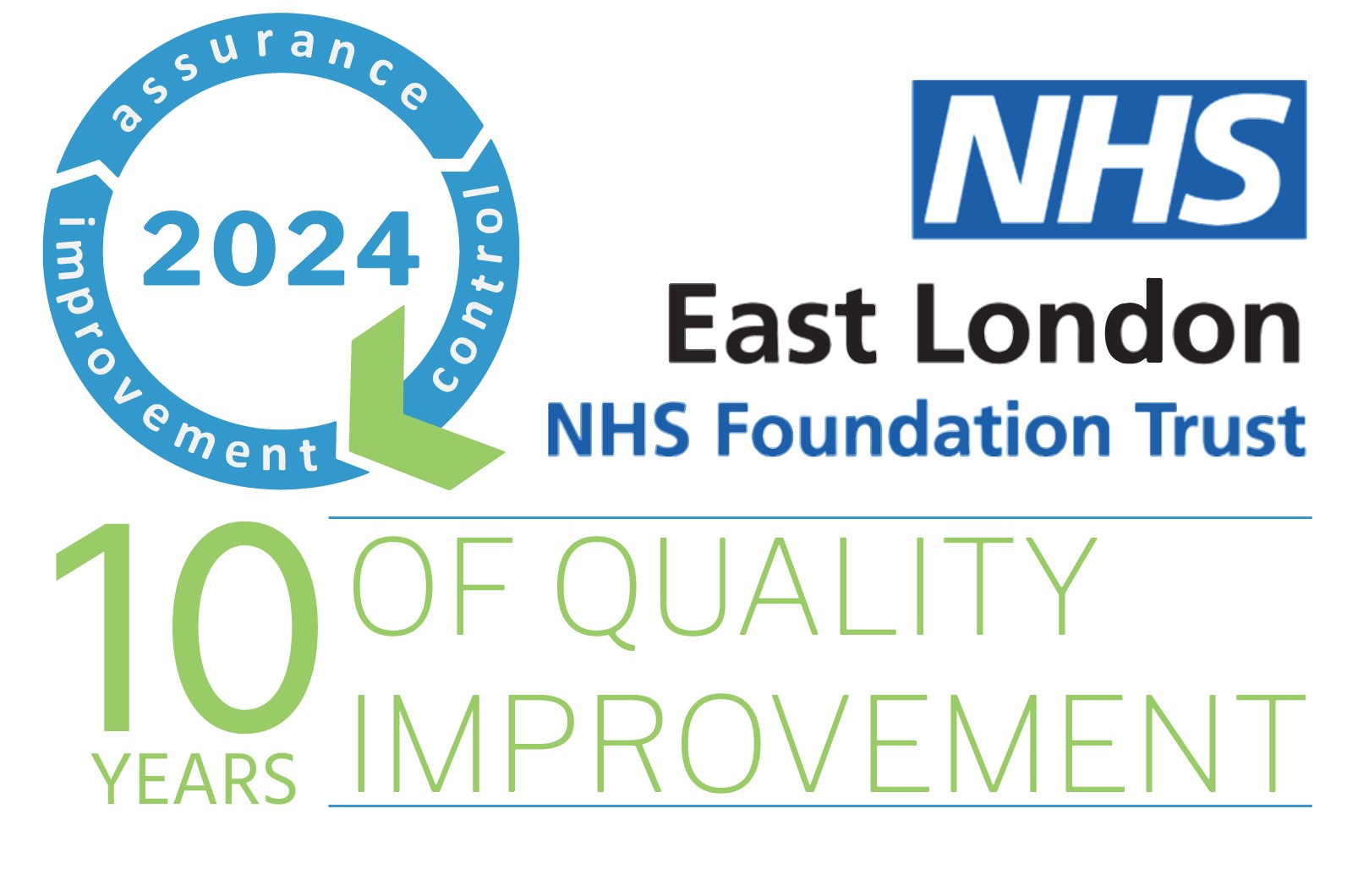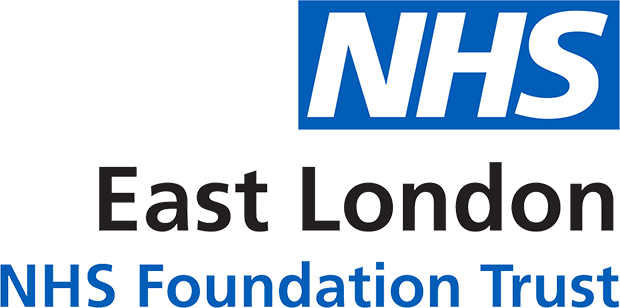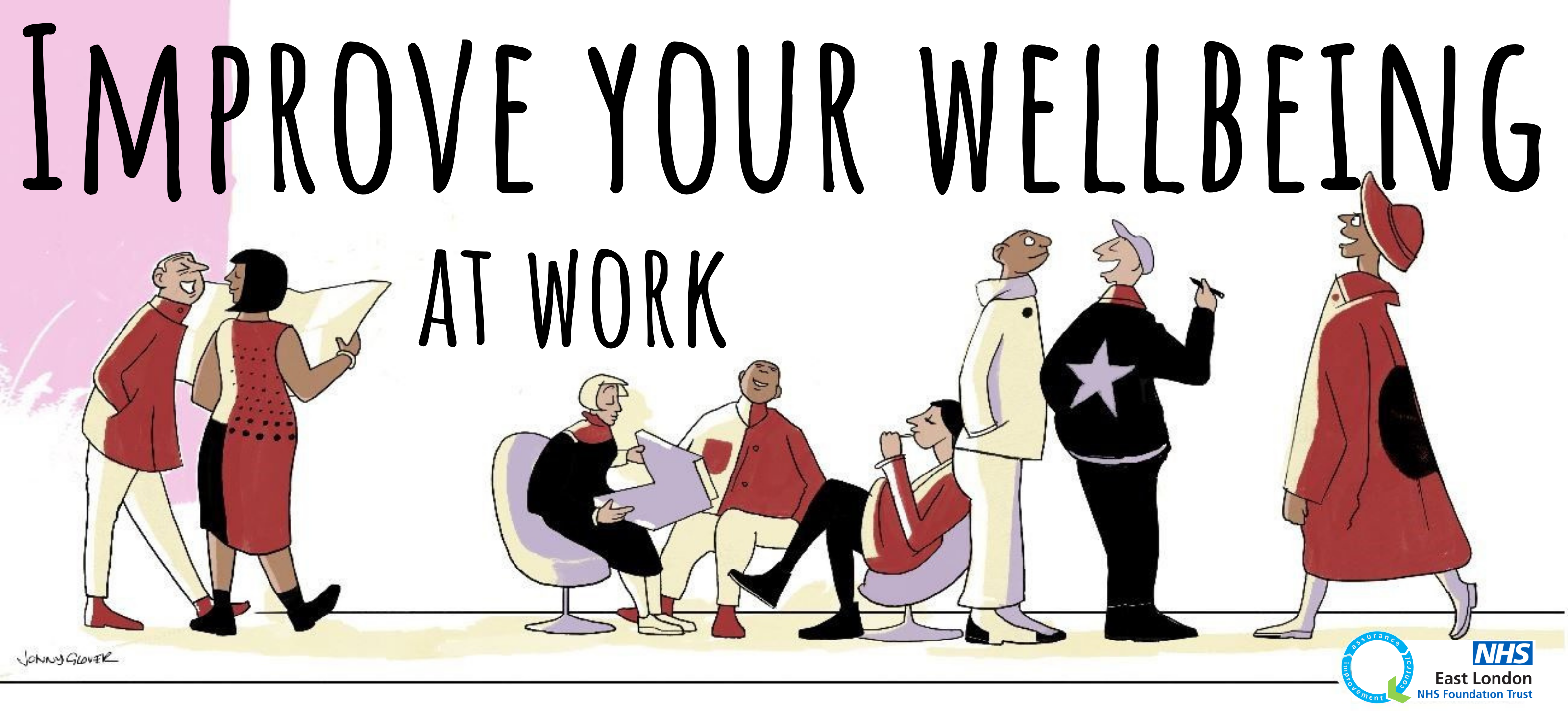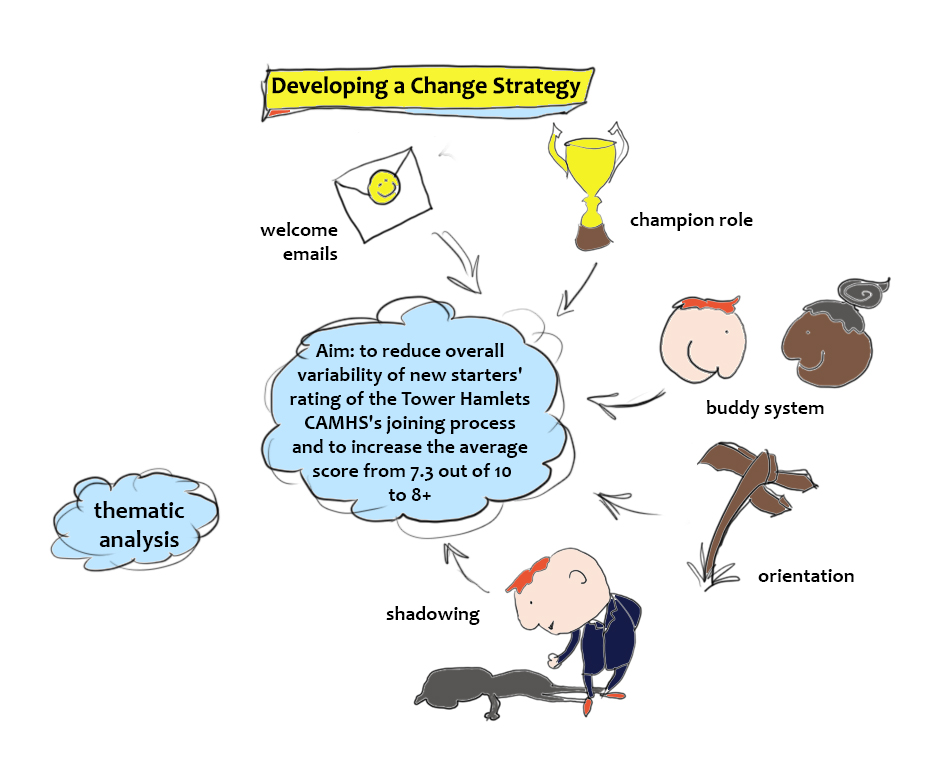Stories from Cohort 4 of Enjoying Work
If you’re interested in making real improvements and improve the wellbeing and satisfaction of you and your team at work, sign up to an introductory session to Enjoying Work
Use the links below to explore these stories:
![]() Randomised Coffee Meeting to Tackle Isolation
Randomised Coffee Meeting to Tackle Isolation
![]() Improving the Experience of New Starters
Improving the Experience of New Starters
![]() Using a Questionnaire to Understand Wellbeing
Using a Questionnaire to Understand Wellbeing
![]() Greatix – Showing Appreciation for Team Members
Greatix – Showing Appreciation for Team Members
![]() Testing to Increase the Good Days
Testing to Increase the Good Days
![]() Understanding Strengths and Possibilities
Understanding Strengths and Possibilities
Randomised Coffee Meeting to Tackle Isolation
Randomised Coffee Meeting to Tackle Isolation
Randomised Coffee Meeting to Tackle Isolation
 The Quality, Compliance and Performance team began their Enjoying Work project in September 2020 with the aim improving their experience of good days by 25%. When working from home, they had faced challenges with IT issues, working long hours, health and well-being and well as feeling isolated due to the lack of face to face contact with other colleagues. Just one or more of these challenges would often lead to a negative impact on someone’s day.
The Quality, Compliance and Performance team began their Enjoying Work project in September 2020 with the aim improving their experience of good days by 25%. When working from home, they had faced challenges with IT issues, working long hours, health and well-being and well as feeling isolated due to the lack of face to face contact with other colleagues. Just one or more of these challenges would often lead to a negative impact on someone’s day.
Meeting regularly, the team gathered some change ideas to tackle the issues and recently tried testing one idea to tackle the problem of isolation. A Plan, Do, Study, Act (PDSA) cycle was set up to test randomised coffee meetings. This involved the randomised selection of two people to meet virtually for a coffee/tea break and a chat once a week.
Most of the team were surprised to find that it did not go as well as expected because often their paired colleague was missing due to a late running meeting or having to deal with an urgent matter. They also discovered that it could sometimes be difficult to maintain conversation at times. Their QI Coach helped the team to study this test and adapt it based on what they learned. The team agreed that it would be better to try an adaptation of the idea instead going forward. Rather than meeting in pairs, the team planned a virtual coffee session together, inviting someone from outside the team to attend (a randomised visitor). In this plan, if any one of them could not attend for whatever reason, there would always be a few other people in attendance.
The first PDSA for this adapted change idea took place recently and seemed to be a success. They are looking forward to running further PDSAs in the future and, who knows, you may be next to receive an invite to be a randomised visitor. If you’re interested, watch this video to find out how to run Plan, Do, Study, Act cycles.
A Cohesive Breakfast Club
A Cohesive Breakfast Club
A Cohesive Breakfast Club
 In this video, Jasemine Ali (Project Lead) has an informal chat and shares some of the testing and learning taking place in the Mental Health Law Enjoying Work project. Please watch and find out:
In this video, Jasemine Ali (Project Lead) has an informal chat and shares some of the testing and learning taking place in the Mental Health Law Enjoying Work project. Please watch and find out:
- What the team learned from testing the idea of holding a ‘breakfast club’
- The impact of this change idea on team cohesion
- What the team will do next
Improving the Experience of New Starters
Improving the Experience of New Starters
Improving the Experience of New Starters
 This sketchnote shows some of the change ideas that Tower Hamlets Child and Adolescent Mental Health Services (CAMHS) have tested to improve the experience of new starters in their team. Due to these improvements, new colleagues reported that the team were warm, approachable and knowledgeable. A number of teams have echoed the need to improve their induction processes, so Tower Hamlets have shared their new starter checklist.
This sketchnote shows some of the change ideas that Tower Hamlets Child and Adolescent Mental Health Services (CAMHS) have tested to improve the experience of new starters in their team. Due to these improvements, new colleagues reported that the team were warm, approachable and knowledgeable. A number of teams have echoed the need to improve their induction processes, so Tower Hamlets have shared their new starter checklist.
Using a Questionnaire to Understand Wellbeing
Using a Questionnaire to Understand Wellbeing
Using a Questionnaire to Understand Wellbeing
 The Newham Home Treatment Team have recently started their Enjoying Work Project, and have joined the learning sessions where they can learn and share ideas with other teams. As part of their first steps, they have worked to develop a questionnaire which is mapped to the IHI Framework for Improving Joy in Work. They have spent time with team members working through this questionnaire to help them understand what the most important areas are to the whole team when it comes to wellbeing at work. From this exercise the team have been able to identify a number of different areas that might be important to work on. This will help them develop their Driver Diagram going forward and select some ideas they would like to test first.
The Newham Home Treatment Team have recently started their Enjoying Work Project, and have joined the learning sessions where they can learn and share ideas with other teams. As part of their first steps, they have worked to develop a questionnaire which is mapped to the IHI Framework for Improving Joy in Work. They have spent time with team members working through this questionnaire to help them understand what the most important areas are to the whole team when it comes to wellbeing at work. From this exercise the team have been able to identify a number of different areas that might be important to work on. This will help them develop their Driver Diagram going forward and select some ideas they would like to test first.
What has really helped the team get going quickly with their work is having dedicated people as part of the project team, management support and a regular space in their team meetings to share the work with the wider team to help with buy-in.
Greatix – Showing Appreciation for Team Members
Greatix – Showing Appreciation for Team Members
Greatix – Showing Appreciation for Team Members
 As part of the ‘Joy’ Specialist Children and Young People Services (SCYPS) 2.0 project, the team have been testing something called a Greatix, which is designed to help people show appreciation to team members. They found that people were finding it difficult to find an opportunity to complete this.
As part of the ‘Joy’ Specialist Children and Young People Services (SCYPS) 2.0 project, the team have been testing something called a Greatix, which is designed to help people show appreciation to team members. They found that people were finding it difficult to find an opportunity to complete this.
The team planned to test completing compliments about colleagues during protected time e.g. team meetings, directorate events via the online form they created from the original SCYPS Joy project. In case you wanted to do something similar in your team, you can find a screenshot of this here. They predicted that protected time to complete a Greatix will reduce the stress and guilt of remembering then forgetting to do Greatix as we ‘don’t have time’.
The Schools Speech and Language Therapy Team allocated 5 minutes in a virtual team meeting to complete a Greatix about someone. Each individual muted themselves and completed the online form independently, using zoom reaction buttons to show when they had finished.
What have they learnt so far from this test?
1. Team members fed back that it really boosted their mental/emotional wellbeing to pay someone a compliment.
2. Re-allocating resources i.e. time spent in a team meeting can have a positive impact on individual and team sense of wellbeing.
3. It is realistic to re-allocate time with a wellbeing focus without it having a negative impact on the rest of the agenda.
What’s next for this test (action)?
The team are wanting to test this on a larger scale at SCYPS directorate wellbeing event and establish feedback.
Testing to Increase the Good Days
Testing to Increase the Good Days
Testing to Increase the Good Days

Like most services, Primary Care teams have been at the forefront of our battle against Covid, yet QI Sponsor Marina Muirhead (Service Director) encouraged the Homeless Medical Centre Health E1 to make time to focus on their staff’s wellbeing. They aim to improve the percentage of staff who report having a good day from 71% to 90% by June 2021 (3 months).
Each staff member has suggested change ideas, which ranged from showing appreciation for colleagues and speaking respectfully to wearing PPE properly and allocating clinical and non-clinical leads to drive their Quality and Outcomes Framework. They are now planning a session to highlight which ideas the group would like to test first.
Understanding Strengths and Possibilities
Understanding Strengths and Possibilities
Understanding Strengths and Possibilities
 Newham Child and Adolescent Mental Health Services (CAMHS) used the Plan, Do, Study, Act cycle to improve how they conducted their Appreciative Inquiry, a tool to help teams explore their strengths, successes and possibilities.
Newham Child and Adolescent Mental Health Services (CAMHS) used the Plan, Do, Study, Act cycle to improve how they conducted their Appreciative Inquiry, a tool to help teams explore their strengths, successes and possibilities.
Their first test aimed to run an appreciative inquiry as a whole team. When they ran the test they found that there were too many people to have meaningful conversations and there was not enough meaningful conversations happening. Their second test was to run appreciative inquiries within the individual clinic teams in the service including inviting service users. They had a much richer conversation and felt part of something important.
Watch Newham CAMHS’s puppet show about the experience:







